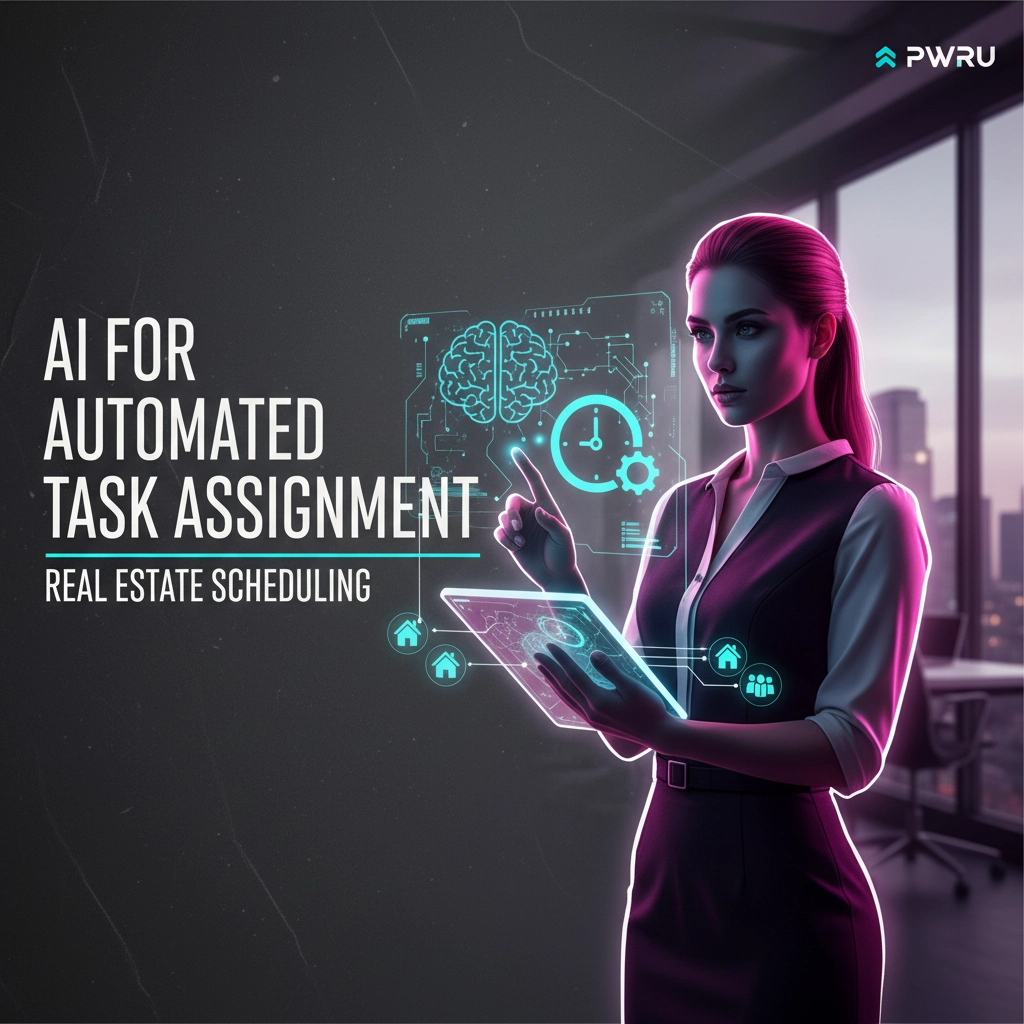Real estate professionals face mounting pressure to adopt AI technologies, yet implementation remains fraught with obstacles. While the benefits of using AI in real estate are well-documented, the path to successful deployment presents numerous challenges that can derail even the most well-intentioned initiatives.
Understanding these barriers is essential for brokerages and agents planning their AI adoption strategy. The challenges span technical, financial, operational, and ethical dimensions, each requiring careful consideration and strategic planning.
Data Quality and Fragmentation Issues
The foundation of effective AI lies in high-quality data, yet real estate suffers from severe data fragmentation. Multiple listing services, CRM systems, transaction management platforms, and marketing tools operate in silos, creating disconnected data repositories.
Data inconsistency compounds this problem. Property information varies across platforms, with different formatting standards, incomplete records, and outdated entries. This fragmentation makes it nearly impossible to create the comprehensive datasets AI algorithms require for accurate analysis.

Many real estate databases contain duplicate entries, missing information, and inconsistent property descriptions. These quality issues directly impact AI performance, leading to inaccurate valuations, flawed market predictions, and unreliable lead scoring.
Data normalization becomes a prerequisite before AI implementation, requiring significant time and resources to clean, standardize, and consolidate information from disparate sources. This process often reveals the extent of data quality problems that organizations didn’t realize existed.
Integration and Compatibility Challenges
Legacy systems present major integration hurdles for AI adoption. Most real estate organizations rely on established software platforms that weren’t designed with AI integration in mind. These systems often use outdated APIs or lack integration capabilities entirely.
The technical complexity of connecting AI tools with existing workflows creates bottlenecks. Real estate professionals need seamless integration between AI features and their daily tools, but achieving this connectivity requires substantial technical expertise and resources.
Platform compatibility issues arise when AI solutions require specific data formats or system configurations that conflict with existing infrastructure. Organizations may need to replace or significantly upgrade their current technology stack to accommodate AI tools effectively.
Financial Barriers to AI Adoption
Cost represents a significant obstacle for many real estate professionals and brokerages. AI implementation requires substantial upfront investment beyond software licensing fees. Organizations must budget for data preparation, system integration, staff training, and ongoing maintenance costs.
Smaller brokerages and independent agents often struggle with the financial requirements of comprehensive AI adoption. While top AI tools for real estate agents can deliver substantial ROI, the initial investment can strain limited budgets.
Hidden costs frequently emerge during implementation. Organizations discover unexpected expenses for data migration, custom integrations, additional hardware requirements, or extended training programs. These unforeseen costs can quickly exceed initial budget projections.
Return on investment timelines vary significantly, making it difficult to justify immediate expenses against uncertain future benefits. Organizations need clear financial planning and realistic expectations about AI implementation costs and benefits.
Privacy and Security Concerns
Real estate AI systems handle sensitive personal and financial information, creating significant privacy obligations. Organizations must comply with various regulations including GDPR, CCPA, and industry-specific privacy requirements that vary by jurisdiction.
Data security becomes more complex with AI implementation. Larger datasets and cloud-based AI services create new attack vectors for cybercriminals. Organizations need robust security measures including encryption, access controls, and regular security audits.
Client consent and data usage transparency present ongoing challenges. Real estate professionals must clearly communicate how AI systems use client information while maintaining trust and regulatory compliance.

Third-party AI services add another layer of privacy complexity. Organizations must evaluate the data handling practices of AI vendors and ensure these align with their privacy obligations and client expectations.
Skills Gap and Training Requirements
The real estate industry faces a significant shortage of professionals with AI expertise. Most agents and staff lack the technical knowledge needed to effectively implement and utilize AI tools.
Training programs require substantial time and resource investment. Organizations must develop comprehensive curricula covering not just AI tool usage, but also data interpretation, system troubleshooting, and best practices for AI-assisted decision making.
Ongoing education becomes necessary as AI technologies evolve rapidly. What teams learn today may become outdated within months, requiring continuous training and skill development programs.
Resistance to change compounds the skills challenge. Some real estate professionals are hesitant to adopt new technologies, preferring familiar manual processes over AI-assisted workflows.
Algorithmic Bias and Ethical Issues
AI systems can perpetuate or amplify existing biases present in historical real estate data. These biases may affect property valuations, lead qualification, or market analysis in ways that create discriminatory outcomes.
Training data often reflects historical patterns that may not represent current market conditions or fair practices. AI systems trained on this data may make recommendations that inadvertently discriminate based on location, demographics, or other protected characteristics.

Transparency becomes crucial for ethical AI use. Real estate professionals need to understand how AI systems make decisions, especially for critical applications like property valuations or investment recommendations.
Regular bias testing and algorithm auditing require specialized expertise that many real estate organizations lack. Ensuring fair and ethical AI use demands ongoing monitoring and adjustment processes.
System Performance and Reliability Issues
AI systems may produce inaccurate results, especially during initial implementation phases. Real estate professionals must learn to identify and respond to AI errors while maintaining service quality for clients.
Model accuracy depends heavily on data quality and training procedures. Poor implementation can result in AI systems that provide misleading information or recommendations, potentially damaging client relationships and business outcomes.
System downtime and technical failures create operational risks. Organizations need backup procedures and contingency plans for when AI systems experience problems or become unavailable.
Overcoming Implementation Challenges
Successful AI adoption requires strategic planning and phased implementation approaches. Organizations benefit from starting with specific use cases rather than attempting comprehensive AI transformation immediately.
Predictive analytics for real estate lead generation represents an ideal starting point for many organizations, offering clear value proposition and measurable results. This focused approach allows teams to build AI expertise gradually while demonstrating concrete benefits.
Pulse Intelligence addresses many common implementation challenges by providing pre-configured AI solutions designed specifically for real estate workflows. Rather than building custom AI systems from scratch, real estate professionals can leverage proven AI capabilities that integrate seamlessly with existing processes.
Partner selection becomes crucial for successful AI implementation. Organizations need vendors who understand real estate industry requirements and can provide ongoing support throughout the adoption process.

Change management strategies help address resistance and skills gaps. Organizations should communicate AI benefits clearly, provide comprehensive training, and create support systems for staff adapting to new workflows.
Building AI-Ready Organizations
Data governance frameworks provide foundation for successful AI adoption. Organizations need clear policies for data collection, storage, and usage that support both AI requirements and privacy obligations.
Pilot programs allow organizations to test AI capabilities with limited risk and investment. These smaller-scale implementations provide valuable learning opportunities and help identify potential challenges before full deployment.
Cross-functional teams combining real estate expertise with technical knowledge improve implementation success rates. These teams can bridge the gap between AI capabilities and practical real estate applications.
Continuous monitoring and optimization ensure AI systems deliver expected value. Organizations should track performance metrics, gather user feedback, and make adjustments to improve AI effectiveness over time.
Strategic Considerations for Success
Realistic timeline planning acknowledges that effective AI implementation takes time. Organizations should expect gradual adoption rather than immediate transformation, allowing for proper training, testing, and refinement.
Vendor evaluation criteria should prioritize real estate industry experience, integration capabilities, and ongoing support services. The right AI partner can significantly reduce implementation challenges and accelerate time-to-value.
Success metrics help organizations track progress and demonstrate AI value. Clear measurement frameworks enable data-driven decisions about AI investment and expansion strategies.
Despite these challenges, real estate organizations that successfully implement AI gain significant competitive advantages. Click here to explore how Pulse Intelligence can streamline your AI adoption journey and help your organization overcome common implementation obstacles while maximizing the benefits of artificial intelligence in real estate.





